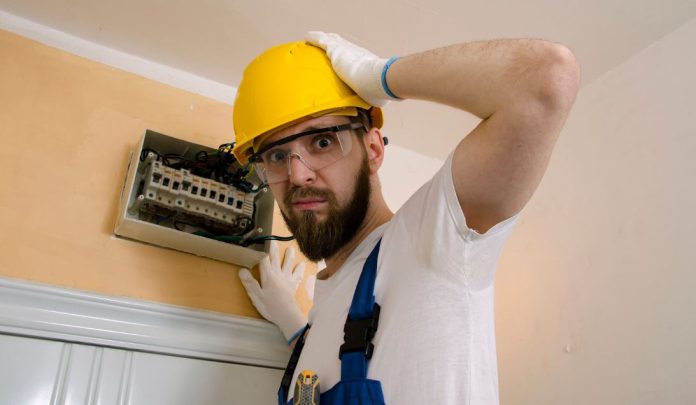Finding a reliable electrician in Melbourne shouldn’t feel like a gamble — but unfortunately, not every person who claims to be a licensed professional actually is. In recent years, there’s been a noticeable rise in unqualified workers and outright scams targeting unsuspecting homeowners and business owners. These aren’t just minor annoyances — they can pose serious safety risks, result in expensive repairs, and in some cases, even violate local building regulations.
So how can you tell who’s legit and who’s just pretending to be? In this guide, we’ll walk you through the most common red flags to watch out for, and what you should do before letting someone near your home’s wiring, switchboard, or power supply.
1. No Licence or Registration Details
In Victoria, anyone performing electrical work must be licensed by Energy Safe Victoria (ESV). A proper license isn’t just paperwork — it proves that the person has completed the required training, passed safety checks, and is legally allowed to perform electrical tasks.
Watch out for:
- Vague answers when asked about licensing
- No license number listed on their website or business card
- Claims like “fully qualified” without showing actual credentials
Before booking anyone, ask for their license number and cross-check it with the ESV’s online register. If they dodge the question or give an excuse, that’s your sign to walk away.
2. No Proof of Insurance
Accidents can happen on any job, and professional tradespeople carry insurance for this exact reason. Public liability insurance protects both you and the worker if something goes wrong — like property damage or injury on the job.
Warning signs:
- No mention of insurance in their quote or service agreement
- Reluctance to share documentation when asked
- Suspiciously low prices that seem “too good to be true”
If someone’s working uninsured and there’s an accident, you could end up footing the bill — or worse, being held liable.
3. Over-the-Phone Quotes Without Seeing the Job
While it’s okay for someone to give you a ballpark figure over the phone, a proper quote should come after they’ve seen the site in person. A legitimate worker needs to understand the layout, access points, and potential risks before giving an accurate estimate.
Red flags:
- Flat rate quotes without asking questions
- Pressure to agree to a price before inspection
- Promises like “we can do it all today” without any assessment
A rushed quote usually means a rushed job. And with electrical problems, that’s never a good thing.
4. Pushy Sales Tactics or Fear-Mongering
Scammers often use high-pressure sales tactics to get you to agree quickly. They might tell you your home is “dangerously unsafe” or that you could face fines unless work is done immediately.
What to look for:
- Urging you to sign on the spot without time to think
- Claiming your switchboard or wiring is illegal without providing evidence
- Offering a “limited time deal” to lock you in
Legitimate professionals will explain the problem, offer options, and let you decide. They don’t scare you into making fast decisions.
5. No Formal Quote or Written Agreement
One of the easiest ways to spot a dodgy operator is the lack of proper paperwork. Every job — even a small one — should come with a written quote and service agreement.
You should expect:
- A detailed breakdown of labour and materials
- Start and finish dates
- Warranty information (if offered)
- Payment terms
If they only want to discuss pricing over the phone or on a scrap of paper, that’s a huge red flag. And if they ask for full payment upfront? Run.
6. Asking for Cash-Only Payments
While some smaller jobs might be paid in cash, professionals should also offer EFT, card payments, or invoicing. If someone insists on cash-only and offers a “cheaper price if you don’t need a receipt,” you’re probably dealing with someone who wants to avoid accountability.
Risks include:
- No proof of payment if something goes wrong
- No warranty or return service
- Dodgy tax practices that reflect poorly on their business ethics
Cash might feel convenient, but if it’s the only option offered, be cautious.
7. Lack of Online Presence or Reviews
In today’s world, most reputable businesses — even small ones — have an online presence. That might include a basic website, a Google listing, or a Facebook page with reviews.
Things to check:
- Do they have any recent reviews or ratings?
- Is their business registered on ABN Lookup or a local trade directory?
- Are photos of past work available?
If there’s no trace of them online and no one seems to have used their services, proceed with caution. You don’t want to be the first (or only) person to take the risk.
8. Constantly Changing Business Names or Contact Info
Scam operations often change names or phone numbers once complaints start piling up. If a company’s name doesn’t match their website, ABN listing, or contact info, that’s a warning sign.
Watch for:
- Multiple trading names across different platforms
- Inconsistent details between their quote and invoice
- Emails from free accounts (like Gmail or Hotmail) with no business domain
If you’re seeing different names pop up across their materials, ask for clarification — and check their ABN registration to confirm they’re legitimate.
9. Poor Communication or Disorganised Behaviour
Sometimes, you can tell a lot just by how someone communicates. Are they slow to reply? Do they constantly reschedule? Are they vague about what the job involves?
These habits can lead to:
- Missed deadlines
- Unexpected costs
- Sloppy or incomplete work
Professionals should keep you informed, answer your questions clearly, and give you realistic timelines — not vague promises.
10. No Offer of a Certificate of Electrical Safety
In Victoria, anyone doing electrical work must issue a Certificate of Electrical Safety when the job is complete. This confirms the work meets safety standards and is legally compliant.
If you’re not offered one:
- Ask directly — it’s required by law
- Refuse to pay until it’s provided
- Report them to Energy Safe Victoria if needed
Skipping this step isn’t just shady — it’s illegal, and it can void your insurance if something goes wrong later.
How to Protect Yourself
It’s not all doom and gloom — there are plenty of great, qualified professionals out there. But a few smart steps can help you avoid the bad ones:
- Ask for their licence number and check it on the Energy Safe Victoria website
- Get multiple quotes to compare pricing and professionalism
- Ask friends or neighbours for recommendations
- Look at recent reviews, not just overall ratings
- Check that they’re insured and offer written warranties
Doing your homework upfront takes a bit more time, but it saves a whole lot of stress in the long run.
Conclusion
At the end of the day, hiring someone to handle electrical work isn’t just about getting the job done — it’s about safety, trust, and peace of mind. While most tradespeople do things by the book, there are still a few out there looking to cut corners or take advantage of unsuspecting homeowners. Knowing what to watch out for can help you avoid a lot of headaches.

